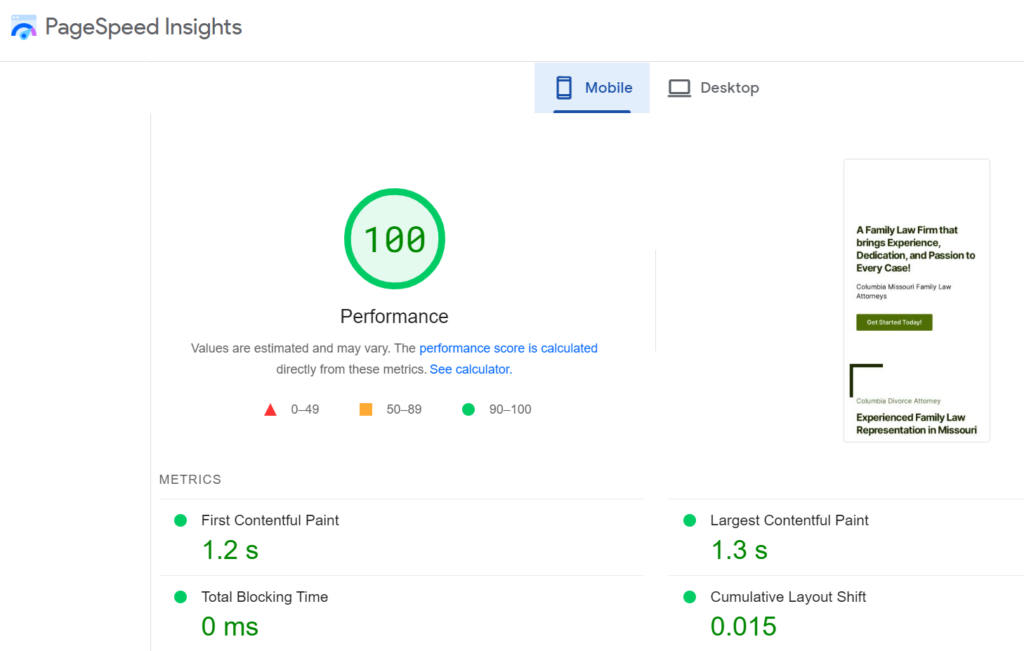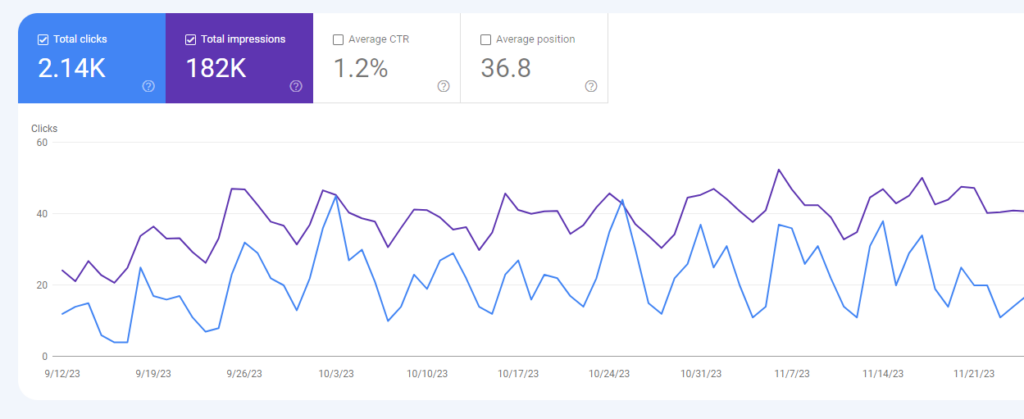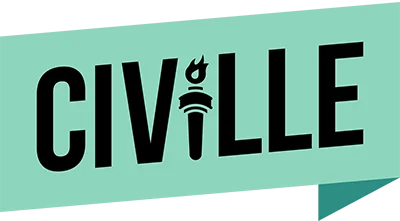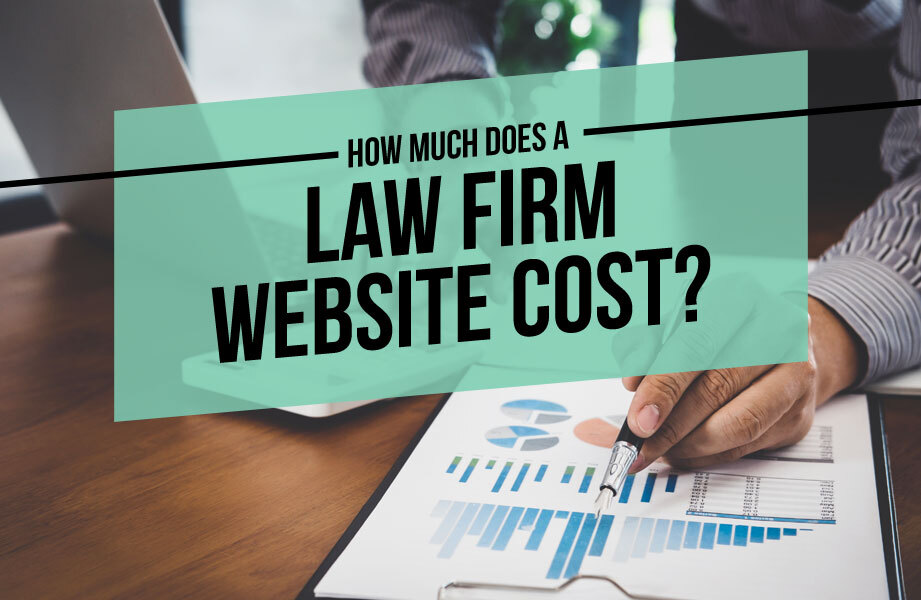
“How much should I pay for SEO?”
If anyone gives your law firm a price after you pose that simple question, you should probably hang up the phone. The fact is, SEO isn’t a one-size-fits-all solution. Depending on a variety of factors and needs, you could expect to pay anywhere from $500 to $10,000 per month on SEO.
But it should be noted, that larger law firms that might be paying on the higher end of that spectrum have different goals than smaller law firms. Even if your budget is on the bottom side of the scale, there is room for opportunity. It all comes down to strategy and execution. You aren’t going to dominate everywhere by spending $500 per month, but with the right strategy, you can make an impact that converts into real leads for your firm.
See What Civille Did for less than $1k/month
Top Factors that Affect Law Firm SEO Cost
- Website Quality: The current state of the law firm’s website can impact costs. If the website needs significant improvements in terms of design, user experience, or technical aspects, additional expenses may be incurred.
- Keyword Competitiveness: Some legal keywords are highly competitive, making it more challenging and expensive to rank for them. The cost may vary depending on the competitiveness of the targeted keywords.
- Geographic Targeting: If the law firm is targeting a specific geographic area, the level of competition in that region can affect costs. Highly competitive markets may require more extensive and aggressive SEO strategies.
- Scope of SEO Services: The extent of SEO services required, such as on-page optimization, off-page optimization, content creation, link building, and technical SEO, will impact the cost.
- Ongoing Commitment: While the SEO setup of your website and digital properties is essential to your success, if you don’t keep up with it, you won’t be able to fully succeed.
- SEO Agency Expertise: Back to the start of the post – if the SEO agency is just trying to get you on an “SEO Services” package, you’ll want more information. Actual deliverables received per month are essential to a successful SEO strategy.
Now that we’ve isolated our top 6 factors that define the cost of SEO for your law firm, let’s dive into each point and how it can help determine the cost of your strategy.
Website Quality and Law Firm SEO Cost
The quality of your law firm website is going to be the biggest factor in the success of your SEO strategy – and will be a factor in determining the cost of the strategy. There are a few reasons why this is.
First, if the technical elements, including page speed, content, title tags, images, and more aren’t up to Google’s standards, it’s going to be more difficult to do proper SEO on the site like content development to drive traffic increases. Therefore, the SEO strategy might include improving the speed, and technical SEO optimization of the site. Let’s look at how all of those elements work together to determine the quality of your site in Google’s eyes.
Website Page Speed: The speed at which pages load significantly influences SEO. Evaluate your site’s page speed using tools like Google PageSpeed Insights to identify areas for improvement.

Custom-Written Interior Content: Each page, such as the home page, practice pages, attorney pages, and about us pages, should feature custom-written content relevant to the law firm’s unique propositions and offerings. This personalized content is integral for creating a personable and engaging website.
Title Tags: Optimizing Title Tags uniquely for the business and geographic areas that the firm represents is essential for effective SEO.
Meta Information: Crafting unique meta descriptions enhances each page’s relevance with search engines, providing control over displayed search results. Consistent use of meta tags and descriptors across the site is vital.
H Tags: Properly structured H Tags help search engines understand the hierarchy of a page and the overall site. The H1 tag represents the main headline, with subsequent sub-heads using H2, and so on.
Optimized URLs: Clean URLs without parameters contribute to improved search visibility and a seamless user experience on the site.
ALT Tags: ALT tags for images are crucial for both SEO and accessibility, emphasizing the importance of providing alternative text for each image.
Schema Markup: Implementing law firm schema markup on pages enhances the site’s comprehensibility for search engines, potentially boosting indexing and visibility.
Secure Site: An SSL certificate is essential for both data security and positive SEO rankings. It indicates a commitment to online security, a growing concern in the digital landscape.
Sitemap Submitted: Ensuring the existence of a sitemap and submitting it to Google Search Console facilitates proper indexing, helping Google interpret and display the site as intended.
Website Design: The aesthetic and user experience aspects of website design are as crucial for SEO as technical considerations. Key design components impacting SEO include:
Fonts and Images: Clear fonts and compressed, relevant images contribute positively to SEO. Unique ALT text for each image is essential for optimization.
Site Content Layout: Well-organized and easily digestible content layouts are essential for both user experience and SEO. Clear sections aid Google in comprehending the content.
Menus and Linking: Intuitive navigation menus and appropriate linking throughout the site enhance user experience, influencing SEO rankings based on user behavior.
Keyword Competitiveness and Law Firm SEO Cost
Being realistic about the keywords you can conquest versus the budget you want to spend on your law firm SEO strategy is essential.
Of course, every personal injury firm would love to rank first for the major practice areas in their city. But if you specialize in car accident injuries in Chicago, you can’t expect to rank for “car accident attorney Chicago” unless you are spending a significant budget on SEO. Google simply isn’t going to allow you to write a single blog post on this topic every month and start to compete with firms that have a large SEO budget.

And the budget is far from the only factor here. The domain authority of your site goes a long way to determine those results. The firms that have been around for a long time with the same domain, and have years of content, links, citations, and more are going to be hard to compete with.
But all is not lost. With a smaller budget – even in a large metro – you can determine what cases are most important to you and develop a longtail keyword strategy that focuses on that one area. The idea is to dominate what is most important to you and focus your site, ongoing content, Google Business Profile, and links on that topic. Once you succeed in that space, you can expand to other relevant and important areas of the law you practice.
SEO on a Budget? See this Solo Law Firm Case Study
A few examples for the personal injury firm in Chicago that can’t yet compete for the larger terms would look like this:
- Be the authority for those asking car accident-related questions. “What should I do after a car accident in Illinois?”
- Find a niche within the Chicago car accident attorney space. “Illinois Accident Traumatic Brain Injury Attorney”
Once you are able to find success, traffic, and leads around your chosen keyword bucket, you can branch out, as your site is building domain authority.
Geographic Targeting and Law Firm SEO Cost
The geographic targeting of your SEO campaign has some relation to the keyword competition item above. To use a similar example, if you are wanting to target a very big city, you are going to want to be very specific about how you go about it – picking a niche and being an expert in a specific area until you build the authority to advance.
One caveat, if your site is fully optimized and very established, you can take on the titans of SEO. This argument is largely based on those firms that need to get a little more creative to find their space.
From a targeting perspective, finding outlying areas where you can make a dent is essential. Instead of going after only Chicago, get hyper-local with the neighborhoods and outlying suburbs that your location or locations are in. This goes for the technical SEO aspects, content marketing, and your Google Business Profile. Your physical location now weighs heavily into how you can target and go about your strategy, so own it. Once you are established, you will be allowed to target a larger area through your site and profile – but you should start local.
Scope of SEO Services for Law Firms and Cost
The cost of the SEO services for your law firm also largely depends on what you are enrolling in – which can also be dictated by the other factors we’ve covered, from keyword competitiveness to geographic targeting.
Ongoing deliverables are really the bread and butter of SEO once you get past the initial site development and optimization. As mentioned above, if the agency isn’t telling you what deliverables you’ll be receiving on a monthly basis, you’ll want to question them. SEO isn’t a set-it-and-forget-it thing. It takes real work to get the job done. There are a lot of elements involved, and we’ll cover the most common.
Weekly Site Audit: Conducting a weekly audit, whether through a service or a technical inspection, is crucial to proactively address any SEO errors that may arise. As websites age, various elements may slip, such as broken links, new pages lacking meta or ALT text, or other potential issues. Regular audits ensure swift fixes before any significant problems occur.
Google Search Console Monitoring: Utilizing Google Search Console is a valuable practice for monitoring overall site health, and the best part is that it’s a free tool. It enables the submission of sitemaps, monitoring of 404 errors, assessment of search performance, and identification of errors and core web vitals related to SEO.

Google Analytics Monitoring: Regularly auditing Google Analytics helps identify any irregularities in website traffic. Whether it’s a bot impacting your site or disruptions in conversion tracking, consistent monitoring through Google Analytics allows for timely detection. Integration with Google Data Studio facilitates the creation of custom dashboards for ongoing monitoring, including the setup of custom 404 alerts and other automated processes.
Visual QA: Despite relying on various tools and alerts, conducting a visual quality assurance (QA) check of the site on a weekly basis remains essential. This visual inspection can uncover issues like design elements out of place that might affect overall user experience, issues that automated tools may not promptly detect.
Frequent development of unique content on your website is an unparalleled way to earn favor with Google. However, this isn’t about mere content creation for the sake of it; it’s about crafting comprehensive content that aligns with your business, caters to your service area, and genuinely addresses the needs of potential clients. Keep in mind that each piece of content should be thoroughly researched and deliver substantial value to users—it’s more than a mere game of keyword optimization. The focus should always be on creating content that resonates with the user.
Unique Content for Every Page: Every page on your website should feature distinct, valuable content tailored to the user. For instance, service area details pages should delve into what your business offers, your expertise, client expectations, a Q&A section, and typical scenarios related to specific cases. By providing in-depth information for each service area, you assist potential customers in understanding their options and build a compelling case for choosing your services.
Custom Blog Content: Integrating a blog into your website is an excellent way to elaborate on your business’s unique aspects and narrative. While service area details pages should remain comprehensive, the blog allows you to explore specific areas of law in greater detail. This is especially useful for topics with limited online results, potentially enabling your site to rank for frequently searched keywords. Additionally, the blog can be utilized to share insights into your community involvement, awards, and more. Regularly updating your blog not only capitalizes on keyword opportunities but also strengthens your ties to the community.
Create Custom Pages: Beyond the blog, consider crafting custom landing pages for specific business elements you want to emphasize. These pages can be tailored for use in PPC campaigns. For example, while you may have a detailed personal injury page on your site, a more direct PPC landing page focusing on car accidents can better capture leads from those urgently seeking assistance. A custom page optimized for lead generation proves highly effective.
Keyword Research: The foundation of all these efforts lies in meticulous keyword research. Whether for website construction or ongoing content creation, proper keyword research enables the identification of terms to optimize your site, blog entries, and landing pages for. This includes both national and local keyword research, depending on your business’s primary market and subject matter. Additionally, thorough research may unveil valuable long-tail keywords that present untapped opportunities.
Rank Monitoring: In addition to identifying target keywords, it’s crucial to monitor and maintain your current keyword positions. Just as you refine your strategy, competitors may attempt to challenge your positions. By isolating such challenges, you can continually optimize your pages, create supporting content, build links, and more to safeguard your top-ranking positions from competitors. Regular rank monitoring is key to maintaining and enhancing your online presence.
Beyond the actions taken directly on your website to optimize SEO and enhance rankings, it is crucial to implement off-site measures to complete your

SEO strategy and ensure comprehensive brand representation.
Google Business Profile: Setting up, optimizing, and regularly updating your Google Business Profile (GBP) listing is paramount for driving more business. Functioning as a miniature website, your GBP listing becomes the landing page for visitors searching for your brand or keywords related to your practice areas. Its unmatched exposure among off-site sources makes it a cornerstone of your SEO strategy.
Business Listings: Maintaining accurate and existing law firm site listings contributes to off-site SEO. These listings remain relevant for individuals seeking a law firm in their vicinity, generating valuable referral traffic.
Review Response: While much of review interaction occurs on GMB, engagement on various review sites, including Facebook, is crucial. Responding to reviews on platforms that allow it is not only good practice but can also contribute to higher rankings in the local pack, according to Google. Demonstrating active engagement with clients, whether the feedback is positive or negative, portrays a positive image for your business.
Link Building: Earning links from authoritative sites remains a tried-and-true method for boosting search rankings. Creating compelling content alone can attract links, as other sites appreciate linking to those that tell the most compelling stories on a given topic. Additionally, strategies such as guest posting, local spotlights, comment and review monitoring, among others, can be employed to enhance your link-building efforts.
Ongoing SEO and Law Firm SEO Cost
As mentioned previously, the scope of the SEO strategy that you invest in needs to include ongoing SEO if you are going to compete. And the strategy needs to include clear deliverables that are being received every month.
Again, the current state of your website in terms of optimization, overall UX and even established domain authority are going to greatly affect how well you are going to be able to compete in your market.
Check out the 20 Best Solo Law Firm Websites of 2024
If you are a brand new firm with a new domain, the best time to build it up is now. You can get started with a strategy under $1,000/month if you have realistic goals, expectations and a narrowed target. Once you see success and your site improves its overall authority, you can branch out and compete on the bigger stage.
Agency Expertise and Law Firm SEO Cost
Back to point one. If someone quotes you a price for “SEO” without knowing anything about your business, there’s a problem.
At Civille, we certainly have a price sheet. But we’d never suggest an SEO strategy that someone doesn’t need – or overpromise with a smaller package for a firm in New York that isn’t going to be able to compete. That’s why we like to get to know your current business, run a full audit on your digital presence, and make recommendations from there.
It’s all a part of our “Freedom in Transparency” tagline. We believe in providing the right services for the right firms. The results and the ROI of our services can speak from there – a reason that we also don’t lock anyone in long contracts.
Want to learn more – let us know what you’re interested in on our contact form and we’ll start the conversation. But while you’re here, take a look at some of the work we’ve done and our successes:





